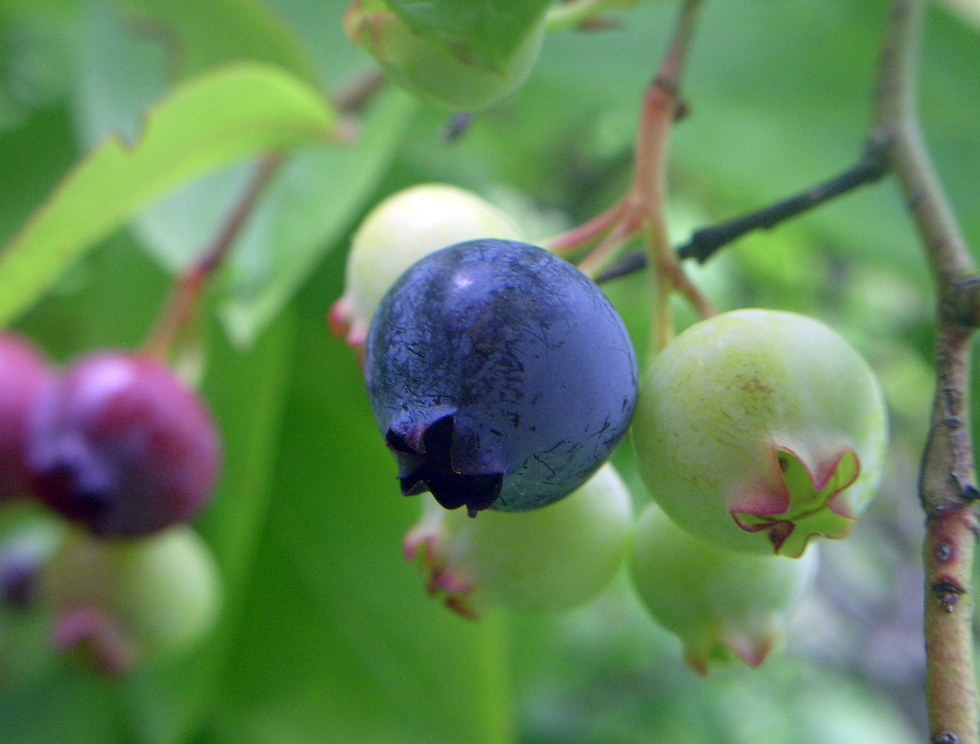Ripping Out Autumn Olive
- Jennifer Anderson

- Jan 3, 2023
- 2 min read
Birds and deer do eat its berries (not the most nutritious snack), and its roots help control erosion. But those virtues do not compensate for the destruction Elaeagnus umbellata leaves in its path.
Autumn Olive, brought over in the 1800s from Asia, not only shades out natives, it also emits biochemicals into the soil that impact the growth of surrounding plants.

Homeowners Dawn Greene and Lawler Kang witnessed this impact on native Oaks, Cedars and Pitch Pine on the roughly 7 acres they inherited in eastern Massachusetts a few years ago..
"I had no idea how deadly they were," Dawn said of the Autumn Olives taking over about a half-acre of their land. "What looked like pretty shrubs with a delightful fragrance was strangling the forest.”
Lawler estimated 100 or so Autumn Olives left untouched for 15 to 20 years and gaining heights of 15 feet or more and 20-foot spreads.
"They’re insanely resilient,” Lawler said of the Olives, now on Massachusetts’ prohibited plant list. “If you burn them, they'll grow back, and if you pull them but the roots hold, new seedlings will take over with a vengeance.”
After extensive research, Dawn and Lawler last spring took to the bigger Olives with a chainsaw and applied shears to the rest. Within seconds of a clean cut Lawler applied vinegar concentrations of up to 40 percent. “I’d douse the hell out of them,” he said.

That fall they inspected and found stumps with red rings, a sign that the vinegar had done its job.
They pulled out most stumps by hand or with a shovel; a few came out with a pick-up truck pulling chains wrapped around the trunks.

Some had to be sheared off at ground level and again doused with vinegar. Stubborn roots they cut underground, doused again and covered with soil.
The work was exhausting, but gratifying. “The forest has come back,” Lawler said. “It’s airy and easy to walk in.”
Want to replace your Autumn Olive with natives? You have a lot of options: Silky Willow, Red Twig Dogwood, Northern Bayberry, Winterberry and Red Chokeberry. :)
Sources:
Autumn Olive: Your Invasive, Seedy Neighbor. The Nature Conservancy. June 30, 2020. https://www.nature.org/en-us/about-us/where-we-work/united-states/indiana/stories-in-indiana/autumn-olive/#elb=1
Greene, Dawn and Lawler Kang. Interview with Tree Talk Natives. January 3, 2023
Hort Notes: Massachusetts Prohibited Plants and Non-Invasive Alternatives. University of Massachusetts Center for Agriculture, Food, and the Environment. https://ag.umass.edu/landscape/news/hort-notes-massachusetts-prohibited-plants-non-invasive-alternatives

*Note: Tree Talk Natives is moving this winter to Rochester, Mass. See you there!





Thank you for sharing this article. Will we be able to order plants before you move? I to buy a few things.